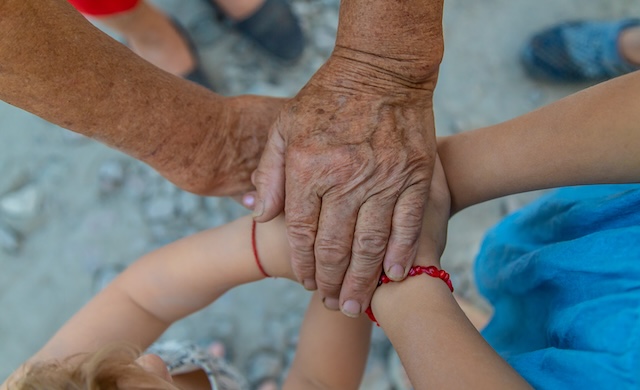What is Codependency and How to Identify it in your Relationships?
Codependency is a pattern of behavior in which a person allows the actions of the other, affect, and is obsessed with control and change those actions. This dynamic may seem harmless or even altruistic on the surface, but it can lead to relationships that are toxic and destructive. The The Magui Block Method it offers a detailed approach to understanding and heal codependency. In this article, we will explore what is codependency, how to identify it, and how to work to overcome it.
The Triangle of Codependency
One of the most effective ways of understanding codependency is through the concept of the triangle of codependency, composed by three main roles: the victim, the rescuer and persecutor. Each role has specific characteristics and can change from one moment to another within the same relationship.
If you want to know more, do not hesitate to enter into our Workshop to Heal Codependency and to learn more about all of this.
Identifying Codependency in Your Relationships
To recognize codependency in your relationships, it is useful to observe certain patterns and behaviors that are recurrent Magui, explains in the workshop and you can see in more depth:
-
- Excessive Responsibility: Feeling responsible for the feelings and problems of the other person, and believe that your well-being depends on their well-being.
- Control: Try to control the actions and decisions of others, believing they know what is best for them.
- Personal Sacrifice: Neglecting your own needs and desires to meet the needs of another person.
- Low Self-Esteem: Feel that your personal value depends on how much you can help or be needed by others.

Causes main of Codependency
Codependency often develops from experiences and dynamics, dysfunctional family. Some of the most common causes include:
Childhood in a Dysfunctional Home: Growing up in an environment where abuse, neglect, or lack of emotional support can lead to develop behaviors codependant. The children in these households learn to satisfy the needs of others as a way to keep the peace and to receive approval.
Low Self-Esteem: People with low self-esteem can become codependent when you seek validation and approval external. You may feel that your value depends on your ability to care for and solve the problems of others.
Fear of Abandonment: The fear of abandonment can lead people to develop behaviors co-dependent. May feel obliged to keep everyone happy and satisfied to avoid being rejected or abandoned.
Consequences of Codependency
Codependency can have several negative consequences for both the codependent person and for those around you:
Wear Emotional and Physical: The constant effort to meet the needs of others can lead to emotional and physical exhaustion. People co-dependent they may neglect their own health and well-being in favor of the other.
Imbalanced Relationships: The codependency creates imbalanced relationships where a person constantly while the other receives. This can lead to resentment and frustration on both sides.
Loss of Identity: People co-dependent may lose their sense of identity by focusing so much on others. Can forget about your own interests, goals and needs, which can lead to a decrease in self-esteem and personal satisfaction.
Strategies for Overcoming Codependency
Overcoming codependency requires time, effort and, often, professional support. Here are some strategies that can help, but if you really want to make the change, we invite you to come to our Workshop heal codependency:
1. To recognize and Accept the Codependency
The first step to to overcome codependency it is to acknowledge and accept that you have this pattern of behavior. This can be a difficult and painful process, but it is essential for personal growth. It is important to be honest with yourself and admit that your behaviors and patterns are negatively affecting your life and your relationships.
2. Set Healthy Boundaries
Learn how to establishing and maintaining healthy boundaries is crucial to overcoming codependency. This includes saying "no" when necessary, afford time and space for yourself and not allow others to make important decisions for you. Set limits help to protect your emotional and physical wellbeing.

3. Improve self-Esteem
Work on improving self-esteem you can help reduce the need for approval and external validation. This can include practice self-care, find activities that you enjoy and make you feel good with yourself, and surround yourself with people who support you and will value you for who you are.
4. Seek Professional Support
Therapy can be a valuable tool to overcome codependency. A therapist can help you understand your patterns of behavior, identify the underlying causes of your codependency and develop strategies to change them. Also can provide a safe, supportive space to explore your emotions and experiences.
5. The practice of self-Pity
The practice of self-pity involves treating yourself with the same kindness, care and understanding that provide a dear friend. This can help you to reduce self-criticism and guilt, and to develop a more healthy relationship and balanced with yourself.
Exercises of the Method Magui Block
The The Magui Block Method proposed practices and specific exercises to help people to heal your codependency. These include identifying the problems that loads by others, to recognize how you're trying to save those people and analyze how you feel when your help is not effective. This process of self-exploration and reflection is essential to break the pattern of codependency and establishing a more healthy.
Exercise 1: Identify the Problems that Loads
The first step is to identify the problems that burdens for others. Make a list of situations in which you felt responsible for solving the problems of other people. Reflect on how you feel in these situations and why you feel the need to intervene.
Exercise 2: Recognize your Role of Savior
Reflect on the times that you tried to save others. Ask yourself what motivates you to take on this role and how it affects your relationships. Recognize your role as savior, it is crucial to understand your behavior codependent.
Exercise 3: Analyze your Feelings
Analyzes how you feel when your aid is not effective or not, is appreciated. Do you feel frustrated, angry, or disappointed? Acknowledge these feelings can help you understand the roots of your codependency and to work on developing a more healthy relationship with yourself.
Conclusion
Codependency is a pattern of complex behavior that can profoundly affect our relationships and our emotional well-being. Identify and heal codependency it is a process that requires time, self-exploration and, often, professional support. With tools such as the The Magui Block Method, it is possible to break these patterns and build relationships more healthy and balanced. If you recognize some of the patterns described in this article, consider taking measures to address the codependency and improve your quality of life.
With the right support, you can learn to break the cycle of codependency and live a life more full and satisfactory. The road to recovery can be challenging, but it is also an opportunity for personal growth and transformation.
Do not hesitate any longer and contact us to request more information.






